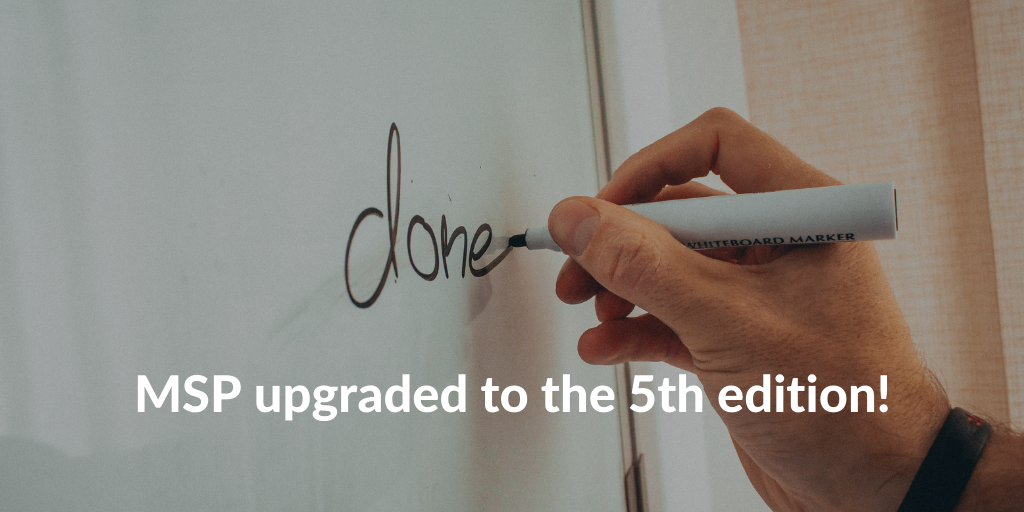MSP upgraded to the 5th edition!

Axelos recently published the 5th edition of the MSP guide, which had not been updated since 2011. The new edition therefore responds to a number of changes that have taken place in the world of program and project management since.
Indeed, a great deal of research has been published in recent years that points to the high failure rate of programs, whether they are transformational or large-scale programs. The digital revolution, the speed of change, the rise of agile working methods, as well as the increased volatility and uncertainty of diverse markets has sprung the need for programme management to evolve and meet these requirements.
This new edition will help current and future programme managers, and many other roles, design, plan, lead and execute their programs and thus help organisations make their transformation program a real success.
The approach to innovation
After several years without having undergone any updates, the new MSP guide has been completely rewritten by questioning the precepts of the fourth edition. Every single aspect has been revised and updated to be in line with today’s context.
The new guide will support both Programme Managers and other key figures within different organisations and will help professionals design, plan, guide and deliver their programmes ensuring the success of organisations.
- The benefits of the MSP fifth edition method
- Align projects and programmes on organizational strategy
- Provides a rigorous approach to benefit management by facilitating role changes
- Ensures an appropriate division of responsibilities and obligations
- Facilitates organizational agility
- Helps understand the associated risks of a programme
- It is an exemplary practice tested in the successful implementation of an organizational change through the application of Programme Management.
MSP 4 vs MSP 5
The essence of what a program is remains the same as it was with the 4th edition: it is temporary, it is results and benefit oriented and it is concerned with leading several projects and other work. The basic concepts (principles, themes and processes) also always form the overall structure of the guide. However, these have been revised keeping the following principles in mind:
- Ensure that MSP remains adaptable and flexible and can be used in a wide range of organisations and environments. There are many and varied drivers of change, and the MSP approach to program management must ensure that the organisation’s investment in change is managed wisely.
- Provide guidance for a wide range of investments that benefit from program management, recognizing that the word “program” has many different meanings for organizations, and that terms other than “programs” may be used by these organizations .
- Emphasize the incremental nature of a program and show how MSP enables cyclical progression to the desired future state. Organizations are complex, the external context is emerging, and the delivery of benefits and value creation generally cannot be achieved by a series of linear steps.
- Enable program teams to recognize the many ways in which outputs and changes can be delivered, including iterative (Agile), traditional and hybrid approaches.
QRP offers the MSP 5th edition training, you can read more about our course here. Other questions? Contact us directly.







